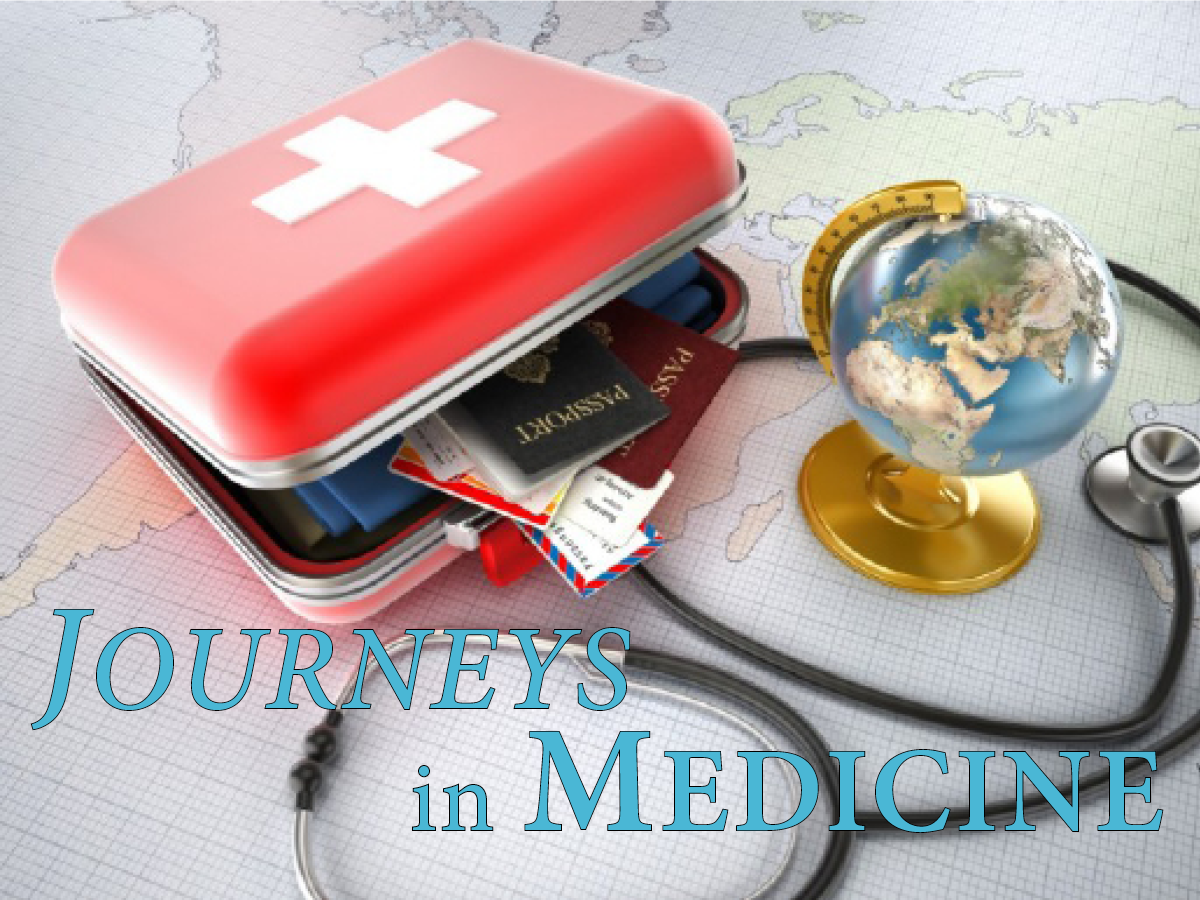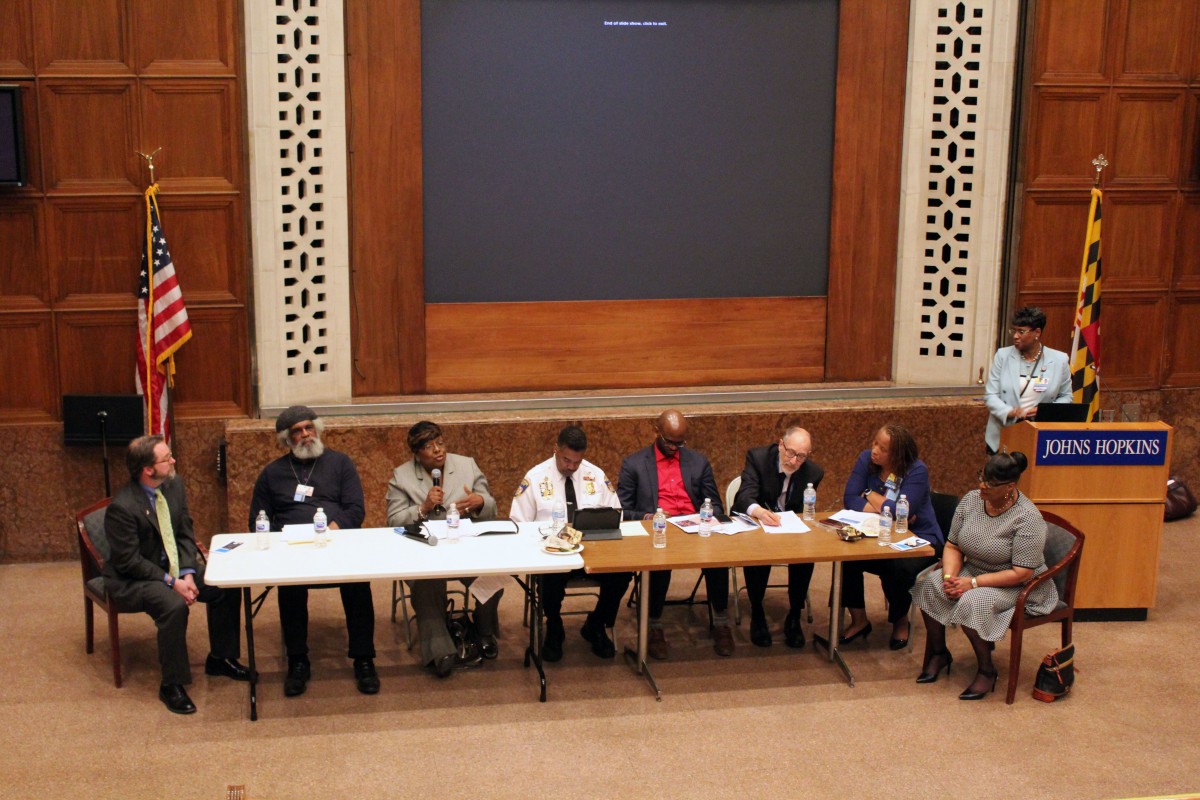In the aftermath of gun violence, those left behind to mourn for their friends and loved ones often become the second victims. They experience mental and physical health as well as economic consequences from coping with the trauma of losing someone to gun violence. These issues were discussed with an expert panel in a DOM Journeys in Medicine symposium held on our East Baltimore and Bayview campuses in April. The symposium objectives were:
- To recognize the signs and symptoms of gun violence exposure in second victims
- To identify best practices for trauma-informed health care
- To identify healthcare and faith-based resources to support those who are second victims
Ms. Alice Oaks, a leader of Survivors Against Violence Everywhere (S.A.V.E.), opened each session sharing her personal account of losing both of her sons to gun violence and how that has impacted her. She encourages and supports other second victims and was a source of inspiration to symposium attendees. Dr. Anika Alvanzo, assistant professor in the Division of General Internal Medicine, and Dr. Philip Leaf, professor of Psychiatry and Behavioral Sciences, provided insight into trauma-informed health care, which includes a “universal precautions” approach—assuming that every patient is a trauma survivor and interacting with him/her in a sensitive manner. It is important to recognize that the healthcare setting can be retraumatizing due to invasive procedures, a state of undress, lack of control, physical touch and provider sex. Dr. Leaf shared the five principles of healing-centered care: (1) safety, (2) transparency and trustworthiness, (3) choice, (4) collaboration and mutuality and (5) empowerment. Practical tips Dr. Alvanzo recommended for delivering trauma-informed care include:
- Give relaxed, unhurried attention
- Talk about concerns and procedures before initiating exams
- Give as much control and choice to the patient as possible
- Validate any concerns as understandable and normal
- Be mindful of possible stress reactions (e.g., becoming stiff, pulling away, being startled, crying)
- Allow a support person or other staff person to be present in the room
- Be familiar with clinic, hospital and community resources
Mr. Jarrell Bratcher and Chief Melvin Russell shared their community-based de-escalation programs focused on youth at risk for becoming victims of violence. Rev. Brenda Tuggle and Iman Hassan Amin shared faith-based resources available to second victims of trauma through their houses of worship and Rev. Matt Norvell and Rev. Peter Heikkinen reminded the audience that the Department of Spiritual Care and Chaplaincy can provide support to healthcare providers affected by caring for trauma victims. We are grateful for the participation of all of our panelists!
- Ms. Alice Oaks, president, S.AV.E. (Survivors Against Violence Everywhere)
- Dr. Philip Leaf, director, Center for Adolescent Health
- Dr. Anika Alvanzo, associate medical director, Addiction Treatment Services and the Center for Addiction & Pregnancy
- Chief Melvin Russell, former chief of Community Collaboration Division, Baltimore City Police Department
- Mr. Jerrell Bratcher, program director, Baltimore Youth De-Escalation & Juvenile Justice Initiative and 2018 MLK Community Service Award Recipient
- Rev. Dr. Brenda M. Tuggle, pastor, Garden of Prayer Christian Church
- Imam Hassan Amin, imam, Johns Hopkins University and director, Center for Adolescent Health
- Rev. Matt Norvell, pediatric chaplain, Johns Hopkins Hospital
- Rev. Peter Heikkinen, palliative care chaplain, Johns Hopkins Bayview Medical Center
For more photos, visit our Facebook page.
To watch a recording of the event at Bayview, click here.


